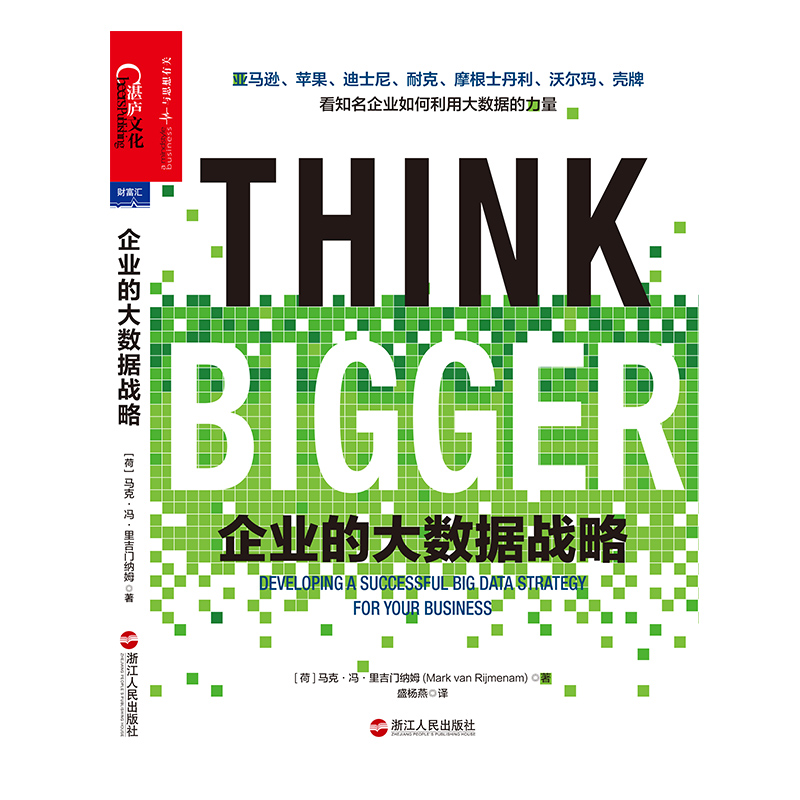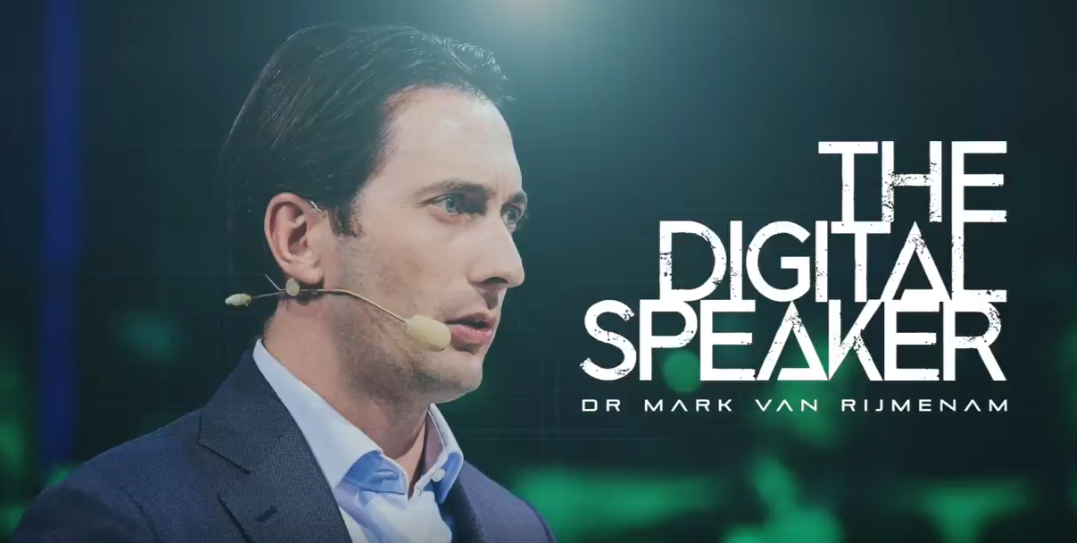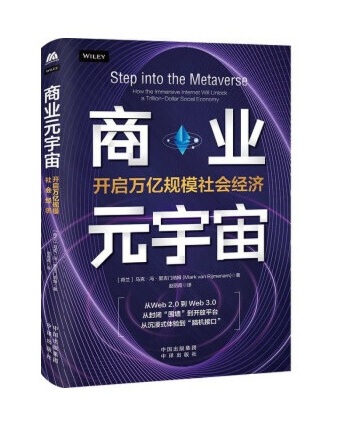人工智能-元宇宙-未来商业
With: Mark van Rijmenam
Date: April 13, 2025
ALEX-林永青00:05
各位好。今天我们很高兴邀请到著名的未来学家Mark-Van-Rijmenam博士。不久前,我刚刚接受了他的采访,所以今天很高兴再次见面。:-) 今天的对话将聚焦于人工智能和元宇宙领域。我知道你在这些领域是否拥有丰富的经验、专业知识,所以,我特别期待听到你今天的最新观点和观察。第一个问题是关于人工智能的未来。你如何看待人工智能在未来十年内改变商业运营?企业应如何调整战略以保持竞争力并提升能力?
Mark-Van-Rijmenam 01:23
非常感谢你,ALEX-林永青,邀请我参加你的节目。能与国际观众的交流总是令人愉快。我必须说,自从疫情以来我又去了中国,所以我很想回去,因为听说中国在技术方面已经走在了未来。我很想看看这些技术的发展方向。听到的故事告诉我,那里正在发生创新,非常令人兴奋。作为一个未来学家,我帮助全球财富500强企业新兴技术以及如何改变他们的业务、个人生活和社会。
Mark-Van-Rijmenam 02:06
作为其中的一部分,我喜欢站在明天的前沿,不仅研究这些技术,还积极参与这些技术的开发。如果我们谈及人工智能的未来,我相信在未来5到10年,我们将看到巨大的颠覆。作为未来学家的职责如今变得更加困难,预测未来变得非常具有面对。世界变化太快,很难理解它的走向。
Mark-Van-Rijmenam 02:44
我有自己的看法。当我进行研究和观察事物如何变革时,我认为主要信息是人工智能是我们所见过的最具创新性的技术。要理解它的发展方向之一,我们首先退一步,理解什么是人工智能——更进一步说,是智能。这是起点。往往认为我们是最聪明的生物,智能的范围从新生儿到爱因斯坦。但我认为我们需要对智能采取更开放的视角,智能的范围从最小的生物到老鼠、其他动物、人类,一直到。在我看来,智能并不是极限。
Mark-Van-Rijmenam 03:57
如果我们从正在构建一个外星智能的角度来看待,这将对社会产生巨大的影响。这是我预见在未来几十年内会发生的事情,尽管不一定在未来五年内。我认为人工通用智能(AGI)不会在近期出现;实现这一点还需要很多突破。我知道这些大语言模型非常强大,但它们仍然会出现幻觉。前几天,我请了一个人工智能为我完成了一些工作,它得到了很多错误的答案。这并不意味着技术上不令人印象深刻——它非常令人印象深刻——但人类俱乐部许多人确实这么做了。从角度看,我预计许多组织将开始实施这有些技术,因为组织我们的生活在陷入世界。如果你的竞争对手整合了人工智能,变得更快、更、降低、增加成本、提升股东价值,那么他们将采用这些技术。这将在未来发生几年。全球所有组织将在其所有领域内开始实施这项技术。没有哪个行业是安全的。每个行业都会受到影响,以非常令人愉快的方式变革社会。

ALEX-林永青 05:46
很好。让我们转向另一个重大技术,通常被认为是人工智能的重要组成部分:元宇宙。在您的著作《走进元宇宙》中,您讨论了沉浸式互联网将如何以创新性的方式渗透社会和经济结构。您能分享一些元宇宙如何改变我们日常生活和工作方式的例子吗?
Mark-Van-Rijmenam 06:47
这是一个很好的问题。《走进元宇宙》是我三年前出版的一本书,也翻译成中文。这本书已经聚焦于如何将物理世界带入数字世界,以及如何将数字世界带入物理世界。这种结合,我们称之为数字体验,将非常具有革新性。首先,考虑将数字世界带入物理世界,主要围绕虚拟现实(VR)。虚拟现实已经发展了几十年,例如苹果的预期愿景Pro并没有达到效果,因为尽管技术很棒,但价格非常昂贵。虚拟现实仍然面临硬件挑战——昂贵、笨重、戴在头上不舒服。但时间问题。硬件会改进眼镜,我们会拥有观赏的,佩戴舒适。使这我们能够创造建立流程、资产、工厂或系统中数字孪生的系统,将物理世界带入数字领域,我们可以互动。这还能用于培训和教育,例如在元宇宙中带孩子们到古罗马,结合人工智能,与马可·奥勒在他的宫殿中进行实际对话。这非常令人兴奋,因为它让我们以非常想象的方式探索新世界。
Mark 08:55
全面数字世界带入物理世界,被称为增强现实( AR)。我认为增强现实会更强大,因为它允许我们在物理现实上添加无限多的层。我看到的一件事是我们将放弃智能手机、电脑和平板电脑,用智能AR眼镜取而代之,我们可以在眼前打开无限多的屏幕,无需笨重的设备即可工作。
Mark-Van-Rijmenam 09:28
这取决于硬件的演进速度,但人工智能的帮助将加速硬件发展。增强现实使我们为物理世界添加娱乐、洞察、信息和价值的层。这是一个万亿美元的机会。然而,越来越依赖一些因素。例如,我们需要非常掌握智能空间——将数字目标放置在物理世界中,让我们担心无法区分物理和数字字这即将开发中。另一个问题是隐私。如果我的视线上的摄像头扫描了我的私人住宅和家人,我这些数据是大型科技公司还是政府获取的吗?我不确定。我们需要仔细考虑这一点。但如果我们在这些领域取得突破,元宇宙将比以往更大的方式回归,特别是希望在人工智能的结合下,未来将非常激动人心。
ALEX-林永青 10:54
同意。在不久的将来,我们的大脑甚至可能无法完全区分虚拟世界和现实世界,因为一切都引来了融合。这自然引发了下一个问题:人工智能和元宇宙在技术和社交方面的融合。你如何看待人工智能和元宇宙的关键特征是什么,你预见到这多种强大技术结合会面临哪些挑战?
Mark-Van-Rijmenam 11:56
绝对是这样。它们的融合有多种方式。首先是高效的硬件开发:人工智能可以帮助构建、更快速、更便宜、更的硬件,将虚拟现实头显着缩小为眼镜甚至隐形眼镜,并为增强眼镜创建更小、更强大的AI芯片。人工智能已经在硬件开发中产生产生了重大影响,这种影响将在未来几年加速。其次是智能空间,正如我之前提到的。我们需要映射环境将数字物体放置在物理世界中,让我们的意识无法区分。只有这样我们才能覆盖恐怖“谷”,不再轻易将数字视线视为意象。智能空间在这里非常关键。
Mark-Van-Rijmenam 13:04
第三个组成部分是教育。想象一个在古罗马的历史课上,你可以与马可·奥勒留对话,这得益于一个加载了关于罗马帝国和马可·奥勒留所有知识的大语言模型。你可以在2000年前的罗马宫殿中与他进行实际对话。这是一种利用人工智能教育后续并历史中学习的基础方式。
Mark-Van-Rijmenam 13:46
第四个组成部分是使用生成式人工智能构建虚拟世界。这些手动世界所需的数字资产创建是不可能的,我们需要以人工智能的方式来完成。我们近年来看到了一些令人印象深刻的视频生成器,它们渐渐越来越好。我们正在迈向一个阶段,只有一个简单的提示就可以创建整个虚拟世界,你可以在其中滑动生成你的化身。人工智能在创建超现实世界或增强体验方面越强大,这个技术就变得有用。
Mark 14:41
元宇宙和人工智能的融合是一种本质上的增强结合,通过人工智能的力量将数字体验带入生活。
ALEX-林永青 14:53
很好,完全同意。对于企业、公司或者其他组织来说,一个关键问题是数据驱动的决策。强调数据在现代商业战略中的核心作用。组织如何建立有效的数据治理框架以保证数据质量和安全?
Mark-Van-Rijmenam 15:54
谢谢你的问题——这是一个非常的问题。一切都源于数据。没有数据,这些都不可能实现。数据有点老生常谈,但它确实是新的石油——尽管我认为它比石油更有价值,因为它的价值随着使用而增加。需要将数据视为组织中最重要的资产之一,从投资(ROI)的角度来看待它。你组织中的每一比特数据都有价值附加。因此,你必须专注于数据治理,确保最高质量,消除组织中的数据孤岛,确保数据共享和访问我见过一家公司在其数据库结构中有175种“沃尔玛”拼写变体的例子。我不知道这怎么可能,让数据的使用变得非常困难。你需要确保质量、治理和协作,便于使用整理和非格式化数据来构建人工智能产品、为客户呼叫中心提供支持或改进算法。垃圾输入,垃圾——如果你输入低质量或有偏见的数据,输出将是低质量有偏见的。数据治理对于利用任何新兴技术都至关重要,没有它,你最好直接输出放弃。
ALEX-林永青 18:02
我同意。在我看来,数据就像传统完全一样的石油——它本来就是一种本体资产,与人类存在和社会、生态系统一起组成,而生命不仅仅是一个独立的资产,如黄金或石油。
Mark-Van-Rijmenam 18:57
我同意。这是人类与机器的协作,机器是其中的一个组成部分。让我分享一个组织的故事。在我几年前攻克肺癌的时候,我的研究重点是如何改变大数据。我采取了一种理论方法,使用了社会物质性理论。社会物质性是一个为研究人员服务的枯燥理论,几乎是为理论服务的理论。它讨论了社会(人类)和物质(所有非人类的事物,比如你的椅子、电脑、建筑或自然)及其在组织中的相互作用。
Mark-Van-Rijmenam 19:51
我的论点是社会物质性不够。我们需要第三个组成部分:人工。人工——机器和人工智能——既不是物质,也不是社会。它是一个独立的行动者,与双方互动。理解机器如何影响我们的社会、商业和个人生活,需要将人工视为一这也是我反对将人工智能拟人化的原因,例如称ChatGPT或DeepSeek为“他”或“她”。我们应该称呼“它”,就像机器人一样,以保持人类与机器之间的区别。只有这样,我们才能确保两者之间的协作取得丰硕成果。
ALEX-林永青20:55
是的,有一句出自道教的伟大引言,出自老子的《道德经》:“道生一,一生二,二生三,三生万物。”“二”是指物质和人类,“三”是机器,对吗?
Mark-Van-Rijmenam 21:24
很高兴你提到这个,在我的下一本书《如何乘风破浪》中,我实际上引用了老子和莲花的道教。我相信道教有很多如何对抗的教导,强调流动、和谐、平衡和对所有相互联系的力量的尊重。
ALEX-林永青 21:54
很好。现在最后一个问题是关于共存和生态系统,特别是未来领导力的转变。随着技术的不断进步,您认为未来领导者必须具备哪些关键素质?他们如何在这种不确定的时代领导?另外,作为组织一位著名的未来学家,您能否分享在数字时代您如何培养这些素质?
Mark-Van-Rijmenam 23:10
这是一个很好的问题,谢谢。我先从一个个人故事开始。十四年前,我骑自行车环绕澳大利亚,100周骑行了14,000公里,为荷兰儿童癌症基金会募集资金成功。我们完成了整个大陆,连续四次环法自行车赛的距离。这是一次不可想象的经历。我学到的一个教训是,找到路上的变化并创造了不可忽视的头部浪潮,你需要扫描地平线好准备,调整你的方法,相信你的策略,并从周围的人那里汲取力量来实现目标。快组织进到今天,我做未来学家长达14年,幸运地与全球最大的交流。我所有的组织都在努力瞄准——不仅仅是技术上的,还有气候变化和地缘政治紧张局势。
Mark-Van-Rijmenam 24:48
基于我的自行车之旅和必需获得的经验教训,我在我的新书《如何乘风破浪》中提出了一个框架,称为WAVE框架。简单地说,要达到同样的目的,你:
- 观察(Watch):利用数据分析、新闻和研究来观察你的领域,连接点滴,了解正在发生的事情。
- 适应(Adapt):以长期目标调整你的组织,短期主义已经不再有效。需要我们的代际思考,与长期愿景和产品供应保持一致。
- 验证(Verify):信任但要确保验证。你拥有高质量、无偏见的数据,并确认你没有处理深格式或偏见信息,特别是在元宇宙中。
- 赋能(Empower):赋能所有利益相关者,推动创新,确保终身学习,并提供实验工具和执行新技术。
Mark-Van-Rijmenam 26:55
关于领导者必备技能的问题,我认为有五个关键素质:
- 预见:世界变化太快,你不能固守己见。
- 分析能力:评估新工具是否有用及其对业务的影响。
- 数字素养:不仅知道如何使用ChatGPT或智能手机,而且了解它们更广泛的影响。
- 未来思维:进行3年、5年甚至10年的情景规划,受到科幻小说的启示,思考可能性。
- 道德基础:构建收益的技术,创造一个惠及每个人的繁荣数字未来,而不仅仅是极少数的组织和个人。
Mark 28:30
通过将这些技能与WAVE框架结合,无论是美国、中国、欧洲还是澳大利亚的组织和社会,都可以为我们的物种创造一个繁荣的数字未来。
ALEX-林永青 28:50
非常好。谢谢你,马克博士,分享你的精彩观点和智慧,为我们描述了数字未来。再次感谢你的理论。
Mark 29:15
我很荣幸。如果有人想联系我,可以在thedigitalspeaker.com找到我,那里有我所有的文章和书籍。很高兴与大家交流。谢谢!

==AI , Metaverse and Business Future==
Interview Transcript
ALEX 00:05
Hello, everyone. Today, we are very pleased to invite the renowned futurist, Dr. Mark. Not long ago, I had the pleasure of being interviewed by him, and it’s great to see you again. Today’s conversation will focus on the fields of artificial intelligence and the metaverse. I understand you have extensive experience, expertise, and research in these areas, focusing on technology, strategy, and more. So, I’m especially looking forward to hearing your latest insights and observations today. The first question is about the future of artificial intelligence. How do you foresee AI transforming business operations over the next decade, and how should companies adapt their strategies to stay competitive and enhance their capabilities?
MARK 01:23
Thank you very much, Alex, for having me. It’s a great pleasure to be on your show. I always enjoy speaking to an international audience. I must say I haven’t been to China since the pandemic, so I’d love to go back because I’ve heard that China is living in the future when it comes to technology. I’d love to see where those advancements are heading. From what I’ve heard, there’s a lot of innovation happening there, which is super exciting. As a futurist, I help Fortune 500 companies worldwide understand emerging technologies and how they are transforming their businesses, personal lives, and society.
MARK 02:06
As part of that, I like to live at the cutting edge of tomorrow, where I not only research these technologies but am also actively involved in building with them. If we talk about where AI is going, I believe that in the coming 5 to 10 years, we will see a tremendous amount of disruption. My job as a futurist is becoming much more difficult nowadays because predicting the future is so challenging. The world is changing so fast that it’s very hard to understand where it’s heading.
MARK 02:44
Now, I have my ideas. When I look at my research and how things are evolving, I think the main message is that artificial intelligence is one of the most disruptive technologies we’ve ever seen. To understand where this is going, we first need to take a step back and understand what artificial intelligence is—and for that matter, what intelligence is. That’s where it all starts. Humans tend to think we are the most intelligent beings, with intelligence ranging from a newborn to Einstein. But I think we need a more cosmopolitan perspective on intelligence, where it ranges from the smallest organisms to mice, to other animals, to humans, and to infinity. In my opinion, there is no upper limit to intelligence.
MARK 03:57
If we take the perspective that we are currently building a kind of alien intelligence, it will have a dramatic impact on society. That’s what I foresee happening in the coming decades, though not necessarily in the next five years. I don’t think artificial general intelligence will appear in the near future; I believe many more breakthroughs are required to achieve that. I know these large language models are super powerful, but they still hallucinate. The other day, I asked an AI to do some work for me, and it returned a lot of hallucinated answers. This doesn’t mean the technology isn’t impressive—it’s very impressive—but there’s still a lot of work to be done. From a business perspective, I expect many organizations will start implementing these technologies because we live in a capitalist world. If your competitors integrate AI, becoming faster and more efficient, reducing costs, increasing profits, and boosting shareholder value, then they will always adopt it. That’s what’s going to happen in the years to come. All organizations worldwide will start implementing this technology across all their fields of interest. No industry is safe. Every industry will be affected, disrupting society in ways that are very beneficial but also, frankly, pretty terrifying.
ALEX 05:46
Very good. Let’s turn to another major technology, often considered a comprehensive part of artificial intelligence: the metaverse. In your book, Step into the Metaverse, you discuss how the immersive internet will reshape social and economic structures in a disruptive way. Could you share some examples of how the metaverse might change our daily lives and the way we work?

MARK 06:47
That’s a very good question. Step into the Metaverse, which I published three years ago, is also available in Mandarin. The book focuses on how we can move the physical world into the digital world and the digital world into the physical world. This combination, what we call the digital experience, is where it’s going to be so disruptive. First, let’s consider moving the digital world into the physical world, which revolves around virtual reality (VR). Virtual reality has been in development for decades, and Apple’s Vision Pro, for example, didn’t perform as expected because, while it’s great technology, it’s very expensive. VR is still running into hardware challenges—it’s expensive, bulky, and heavy. But that’s just a matter of time. Hardware will improve, and eventually, we’ll have sleek glasses that you can wear comfortably. This will allow us to create digital twins of processes, assets, factories, or systems of systems, bringing the physical world into the digital realm where we can interact with it. It also enables training and education in the metaverse, where we can bring kids to ancient Rome and, in combination with artificial intelligence, have actual conversations with Marcus Aurelius in his palace in virtual reality. This is super exciting because it allows us to explore new worlds in a very immersive way.
MARK 08:55
On the other side, we have moving the digital world into the physical world, which is called augmented reality (AR). I think AR will be much more powerful because it allows us to add an infinite number of layers on top of physical reality. One thing I see happening is that we’ll ditch our smartphones, computers, and tablets, replacing them with smart AR glasses where we can spin up an infinite number of screens in front of us and work without bulky devices.
MARK 09:28
This depends on how quickly hardware evolves, but with the help of artificial intelligence, hardware development will accelerate. AR will allow us to add layers of entertainment, insights, information, and value to the physical world. This is a trillion-dollar opportunity. However, there are still dependencies. For example, we need to become very good at spatial intelligence—placing digital items in the physical world so seamlessly that our brains can’t tell the difference between the physical and the digital. That’s still being developed. Another issue is privacy. If I have a camera in my glasses scanning my private home and family members, do I want that data going to a big tech company or the government? I’m not sure. We need to think about that carefully. But with breakthroughs in these areas, the metaverse will come back bigger and better than ever, especially in combination with artificial intelligence. It’s going to be an exciting future.
ALEX 10:54
Totally agree. In the very near future, our brains may not even distinguish between the virtual and real worlds as everything converges. This brings us naturally to our next question: the convergence of AI and the metaverse from both technological and societal perspectives. How do you see AI and the metaverse converging, what might be the key characteristics of this integration, and what challenges do you foresee emerging from combining these two powerful technologies?
MARK 11:56
Absolutely. There are numerous ways they converge. First, hardware development: artificial intelligence can help build better, faster, cheaper, and more efficient hardware, shrinking VR headsets into glasses or even lenses, and creating smaller, more powerful AI chips for AR glasses. AI is already having a significant impact on hardware development, and that will only accelerate in the coming years. Second is spatial intelligence, as I mentioned. We need to map environments and place digital items in the physical world so convincingly that our brains can’t tell the difference. Only then will we cross the uncanny valley, where we can no longer easily dismiss the digital as fake. Spatial intelligence is critical here.
MARK 13:04
The third component is education. Imagine a history class in ancient Rome where you can have a conversation with Marcus Aurelius, powered by a large language model fed with everything about the Roman Empire and his writings. You could have an actual conversation with him in his palace 2,000 years ago. That’s a powerful way to leverage AI for educating the next generation and learning from the past.
MARK 13:46
The fourth component is using generative AI to build virtual worlds. Creating trillions of assets to fill these worlds manually is impossible, so we need AI to do it. We’ve seen impressive video generators launched in recent years, and they will only improve. We’re moving toward a stage where we can create entire virtual worlds with a simple prompt, allowing you to walk around in them with your avatar. The better generative AI becomes at creating hyper-realistic virtual worlds or augmented experiences, the more useful this technology will be.
MARK 14:41
The convergence of the metaverse and artificial intelligence is an extremely powerful combination, bringing the digital experience to life with the power of AI.
ALEX 14:53
Very good, I completely agree. For enterprises, companies, or other organizations, one critical issue is data-driven decision-making. You emphasize the central role of data in modern business strategy. How can organizations establish effective data governance frameworks to ensure data quality and security?
MARK 15:54
Thank you for the question—a very important one. It all starts with data. Without data, none of this is possible. Data is a bit of a cliché, but it’s truly the new oil—though I’d argue it’s more valuable because its value increases the more you use it, unlike oil. You need to leverage data as one of your most important assets within your organization, viewing it from an ROI perspective. Every bit of data in your organization has value attached to it. To do that, you must focus on data governance to ensure the highest quality, eliminate silos where everyone keeps their own copies of data and refuses to share, and manage access control. I’ve seen examples where a company had 175 variations of the word “Walmart” in their database structure. I don’t know how that’s possible, but it makes it very difficult to do anything with the data. You need to ensure quality, governance, and collaboration so you can use both structured and unstructured data to build AI products, power customer call centers, or improve algorithms. Garbage in, garbage out—if you input low-quality or biased data, your output will be low-quality and biased. Data governance is crucial for leveraging any emerging technologies, and without it, you might as well give up.
ALEX 18:02
I completely agree. In my view, data isn’t just like oil in the traditional sense—it’s more like an ontological asset, intertwined with human existence in our society and ecosystem, not just a standalone asset like gold or oil.
MARK 18:57
I agree. It’s a human-machine collaboration, and the machine is just one component. Let me share a story. When I did my PhD a few years ago, my focus was on how big data works and how it’s changing organizations. I took a theoretical approach using a theory called socio-materiality. Socio-materiality is a dry theory for researchers, almost a theory for theories. It’s about the social (humans) and the material (everything non-human, like your chair, computer, building, or nature) and how they interact within organizations.
MARK 19:51
My argument was that socio-materiality isn’t enough. We need a third component: the artificial. The artificial—machines and artificial intelligence—is distinct from both the material and the social. It’s its own actor that interacts with both. Understanding how machines affect our society, businesses, and personal lives requires seeing the artificial as an independent actor. That’s why I oppose anthropomorphizing AI, like calling ChatGPT or DeepSeek “he” or “she.” We should call it “it,” just like robots, to maintain a distinction between humans and machines. Only then can we ensure a fruitful collaboration.
ALEX 20:55
There’s a great quote from Taoism, from Laozi’s Tao Te Ching: “The Tao creates one, one creates two, two creates three, and three creates the whole universe.” The two are the material and human, and the third is the machine, right?
MARK 21:24
I’m glad you mentioned that because, in my next book, How to Ride a Tsunami of Change, I actually quote Laozi and draw on Taoism. I believe Taoism has much to teach us about dealing with disruption, emphasizing flow, harmony, balance, and respect for interconnected forces.
ALEX 21:54
Very good. Now, the last question is about coexistence and the ecosystem, specifically the evolution of future leadership. As technology continues to advance, what key qualities do you believe future leaders must possess, and how can they guide their organizations through this uncertain time? Also, as a renowned futurist, could you share how you’ve developed or cultivated these qualities in your career in this digital era?
MARK 23:10
That’s a very good question, thank you. I’ll start with a personal story. Fourteen years ago, I cycled around Australia—14,000 kilometers in 100 days—to raise money for a Dutch children’s cancer fund. We managed to complete the entire continent, roughly equivalent to cycling the Tour de France four times back-to-back. It was an amazing experience. One lesson I learned was that to deal with change on the road and create unstoppable momentum, you need to scan the horizon to prepare, adapt your approach, diversify your strategies, and draw empowerment from those around you to achieve your objectives. Fast forward to today, I’ve been a futurist for 14 years, speaking to the biggest organizations worldwide. I see all organizations struggling with disruption—not just technological but also from climate change and geopolitical tensions.
MARK 24:48
Based on my cycling trip and the lessons from that adventure, I’ve developed a framework, outlined in my new book, How to Ride a Tsunami of Change, called the WAVE framework. In its simplest form, to deal with disruption, you must:
- Watch for signals using data analytics, news, and research to understand what’s happening in your field and connect the dots.
- Adapt your organization with a long-term purpose, as short-term focus on the next three months of shareholder value no longer works. We need intergenerational thinking and alignment with a long-term vision and product offerings.
- Verify everything—trust but verify. Ensure you have high-quality, unbiased data and confirm you’re not dealing with deepfakes or misinformation, especially in the metaverse.
- Empower all stakeholders to drive innovation, ensure lifelong learning, and provide tools to experiment and execute new technologies.
MARK 26:55
To answer the first part of your question about the skills leaders need, I believe there are five key qualities:
- Adaptability: You can’t be stuck in your ways because the world changes too fast.
- Analytical skills: To assess whether a new tool is useful and how it will impact your business.
- Digital literacy: Beyond knowing how to use tools like ChatGPT or smartphones, understanding their broader implications.
- Future thinking: Engaging in scenario planning for 3, 5, or even 10 years ahead, inspired by science fiction to consider the improbable.
- Ethical grounding: Building responsible technology to create a thriving digital future that benefits everyone, not just a select few.
MARK 28:30
By combining these skills with the WAVE framework, organizations and societies—whether in America, China, Europe, or Australia—can create a thriving digital future for our species.
ALEX 28:50
Very good. Thank you, Dr. Mark, for sharing your wonderful insights and wisdom, giving us a vivid description of the digital future. Thanks again for your theories.
MARK 29:15
My pleasure. If anyone wants to reach out, I’m easy to find at thedigitalspeaker.com, where you can find all my articles and books. Happy to chat with anyone. Thank you!
